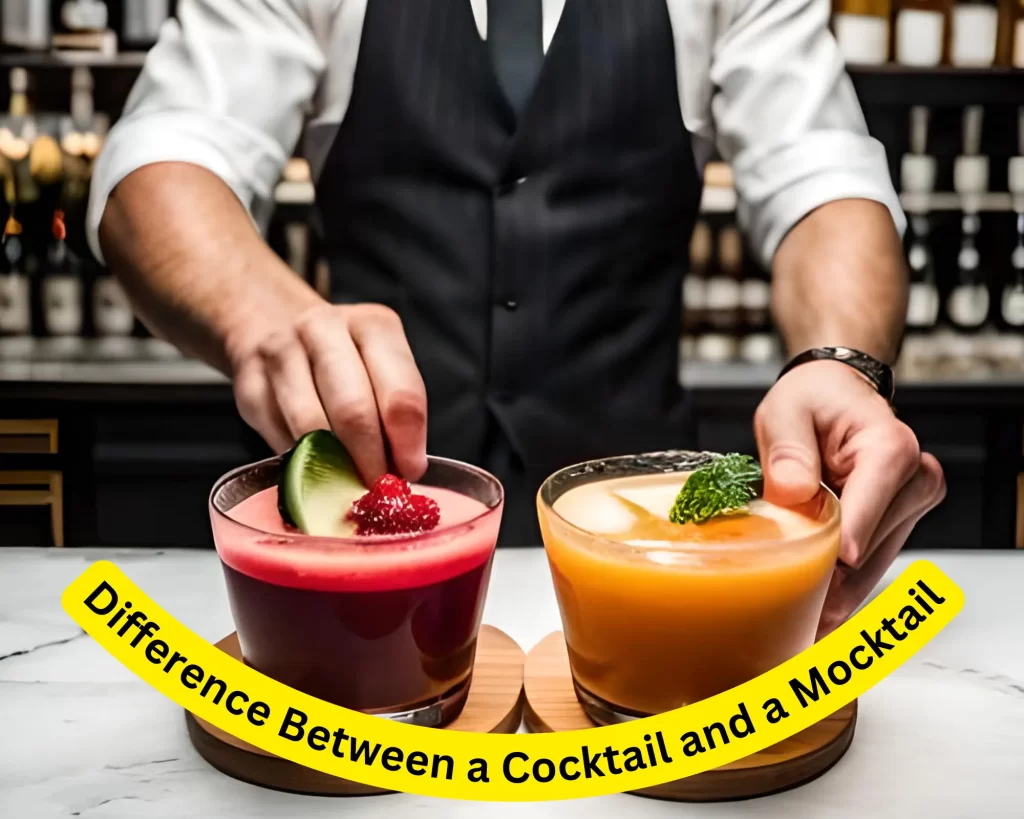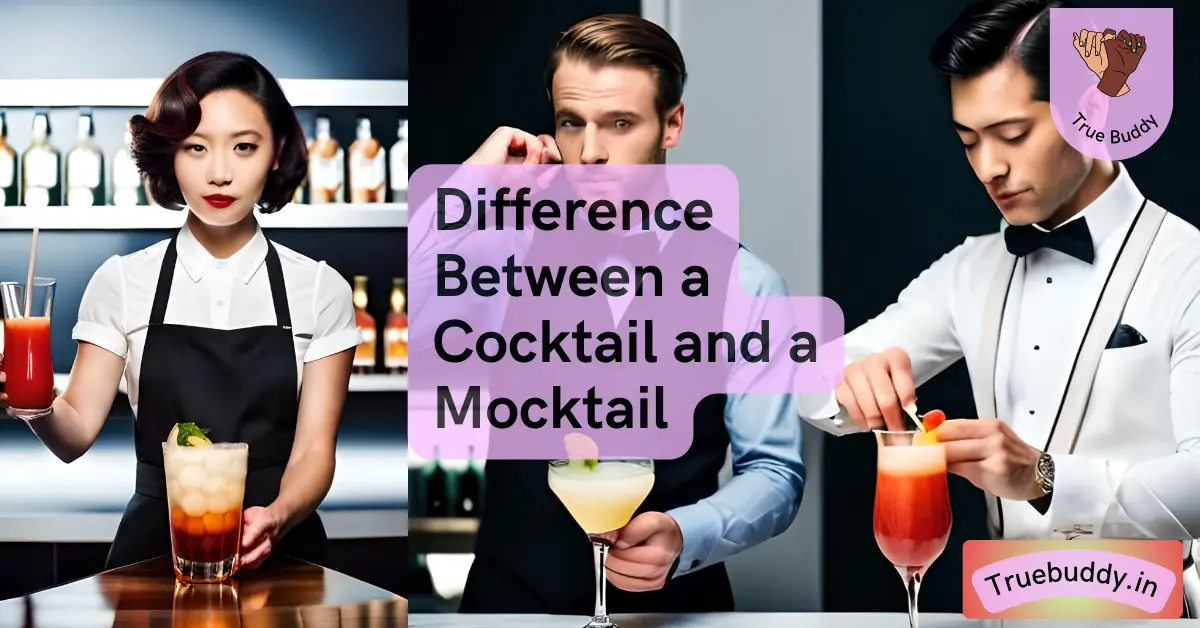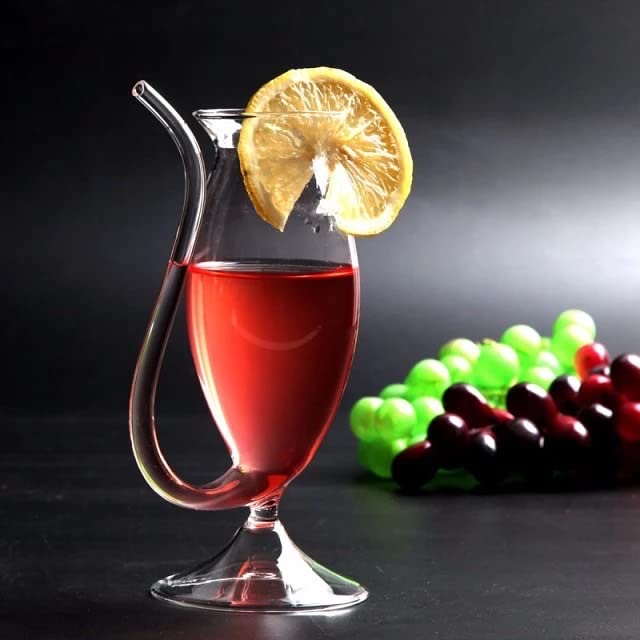Welcome to TrueBuddy
Thanks for visiting my blog on “Difference Between Cocktail and Mocktail“. I have spent a good time in research and writing this useful guide for you.
In this blog post, You will read:
- Difference Between a Cocktail and a Mocktail
- Cocktail Vs Mocktail: FAQs
- Best Cocktail and Mocktail Serving Glasses
If you plan to buy any products, kindly click through my link. I may receive a small commission from the purchase you make without costing you any extra penny.
This commission will help and encourage me to write some more useful article
Don’t Forget to Check Out Some of the Best Deals of the Day on Amazon.
When it comes to indulging in refreshing beverages, two popular options that often come to mind are cocktails and mocktails. While they appear quite similar at first glance, there are significant differences between them. Whether you’re someone who enjoys a spirited drink or prefers a non-alcoholic alternative, understanding the difference between cocktails and mocktail can help you make an informed choice for any occasion.
You may also like:
- Shake it Up: 16 Exciting Cocktail Recipes for Every Occasion
- Finding Nirvana in a Glass: Discovering India’s Best Mojito Syrups
- Exploring Bombay Sapphire Price: A Guide for Gin Enthusiasts
In this article, we will explore the differences between cocktails and mocktails. We will look for their composition, purpose, versatility, and cultural significance. By the end, you’ll have a clear understanding of what sets these two types of drinks apart.

Difference Between Cocktail and Mocktail
1. Composition: What Makes a Cocktail and Mocktail?
The primary difference between cocktails and mocktails lies in their composition. A cocktail is a mixed drink that typically includes one or more alcoholic spirits as its base ingredient. Spirits, such as vodka, gin, rum, tequila, or whiskey, form the foundation of a cocktail. Other ingredients such as fruit juices, sodas, syrups, or bitters are also combined. This helps in creating complex and flavorful concoctions.
Cocktails offer various options due to the availability of alcoholic spirits and the ability to experiment with different flavor combinations. Bartenders and mixologists often create signature cocktails, using their expertise to craft unique and exciting recipes. The alcoholic content in cocktails can range from mild to potent, allowing for a diverse range of experiences.
A mocktail is a non-alcoholic beverage. It mimics the appearance and taste of a cocktail but excludes any alcoholic ingredients. Mocktails are made by combining various fruit juices, flavored syrups, sparkling water, herbs, and other non-alcoholic ingredients. The focus of a mocktail is to provide a similar sensory experience to a cocktail without the inclusion of alcohol.
2. Purpose: Cheers or No Cheers?
Cocktails and mocktails serve different purposes and cater to different preferences. Cocktails are often enjoyed for relaxation, celebration, and enjoyment. They are commonly served at social gatherings, bars, restaurants, and cocktail parties. Cocktails can be crafted to suit different tastes and preferences. The alcohol content in cocktails adds a unique element to the drink. It allows a pleasurable and sometimes intoxicating experience.
Mocktails are a popular choice for those who prefer not to consume alcohol. Itprovide an inclusive and enjoyable option for individuals of all ages and preferences. They are commonly served at events where alcohol consumption is restricted or where non-alcoholic options are desired. Mocktails can be just as visually appealing and flavorful as cocktails, offering a wide range of creative and refreshing options.
3. Versatility: The Chameleon-like Nature
Cocktails offer a wide range of options due to the versatility of alcoholic spirits and the ability to experiment with various ingredients. Bartenders and mixologists have the freedom to create unique and signature cocktails, often incorporating local or seasonal ingredients. From classics like the Martini or Old Fashioned to contemporary creations like the Espresso Martini or Mojito, the possibilities are endless. Cocktails can be customized to suit personal tastes and preferences. Their alcohol content can be adjusted to match the desired strength.
Mocktails provide a versatile alternative that can be enjoyed by everyone. Since they do not contain alcohol, mocktails can be consumed at any time and in any setting. They are a popular choice for those who want to enjoy a alcohol-free visually appealing beverage. Mocktail recipes can be adapted to suit personal preferences. It can be prepared as per dietary restrictions, or health considerations of individual.
Mocktails often rely on the creative use of fruits, herbs, and flavored syrups to create enticing flavor profiles. They can be as simple as a refreshing blend of citrus juices or as complex as a mocktail that incorporates muddled herbs, infused syrups, and artisanal garnishes.
Mocktails also offer versatility in terms of their presentation. They can be served in traditional cocktail glasses, adorned with fruit slices, herbs, or decorative straws to enhance their visual appeal. Mocktails can be just as aesthetically pleasing as their alcoholic counterparts.
4. Cultural Significance: Social Dynamics
Cocktails are associated with social gatherings, celebrations, and special occasions. They hold cultural significance in many societies and have become a symbol of sophistication, indulgence, and relaxation. Cocktail bars and lounges have gained popularity, with mixologists showcasing their skills and creativity by crafting innovative and artful concoctions. Cocktails have also been featured prominently in literature, film, and popular culture, adding to their allure and mystique.
Mocktails, on the other hand, have gained popularity due to an increased emphasis on health consciousness. They offer a viable option for individuals who choose not to consume alcohol. Mocktails have become an integral part of many social events, catering to those who prefer non-alcoholic alternatives or need to stay sober.
Mocktails also play a significant role in creating an inclusive environment, ensuring that everyone feels welcome and accommodated at social gatherings. They provide an opportunity for individuals who do not consume alcohol to enjoy flavorful and visually appealing beverages without compromising on taste or experience. Mocktails have become a creative canvas for mixologists, who are continuously developing innovative recipes to meet the growing demand for non-alcoholic options.
Cocktail Vs Mocktail: FAQs
What is the main difference between a cocktail and a mocktail?
A cocktail is a mixed drink that includes alcoholic spirits as its base ingredient. In contrast, mocktail is a non-alcoholic beverage that mimics the appearance and taste of a cocktail.
Can a cocktail be made into a mocktail?
Yes, most cocktails can be transformed into mocktails by substituting alcoholic spirits with non-alcoholic alternatives.
Are mocktails less flavorful than cocktails?
Mocktails can be just as flavorful and enjoyable as cocktails. They rely on creative combinations of fruit juices, syrups, herbs, and other non-alcoholic ingredients.
Are mocktails healthier than cocktails?
Mocktails generally have fewer calories than cocktails, as they exclude the alcohol content.
Are mocktails suitable for all ages?
Yes, mocktails are suitable for individuals of all ages. They are a great option for those who want to enjoy a flavorful beverage without the effects of alcohol.
Are mocktails more affordable than cocktails?
Mocktails are often more affordable than cocktails since they do not include expensive alcoholic spirits.
Best Cocktail and Mocktail Serving Glasses
The choice of serving glass is an integral part of the overall beverage experience. Just as the presentation of a dish can enhance its appeal, the proper glassware can elevate a cocktail to new heights. The glass’s shape, size, and style can influence the aroma, temperature, and even the drink’s visual appeal. Here we have handpicked some of the best mocktail and cocktail serving glasses for you.
Conclusion
The difference between a cocktail and a mocktail lies in their composition, purpose, versatility, and cultural significance. Cocktails are mixed drinks that include alcoholic spirits and are enjoyed for their taste, complexity, and the experience they provide. They are commonly associated with celebrations and social gatherings. On the other hand, mocktails are non-alcoholic beverages that mimic the appearance and taste of cocktails but exclude any alcoholic ingredients. Mocktails offer a refreshing and flavorful alternative for those who choose not to consume alcohol, catering to a diverse range of preferences and dietary considerations.
Both cocktails and mocktails have their unique place in the world of beverages, providing options that suit different occasions, tastes, and preferences. Whether you’re in the mood for a spirited experience or prefer a non-alcoholic delight, there’s a wide range of cocktails and mocktails to choose from. So, next time when you are in social gathering, you can make an informed choice between a cocktail and a mocktail. Cheers!



